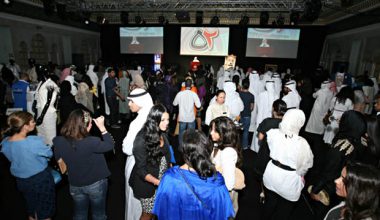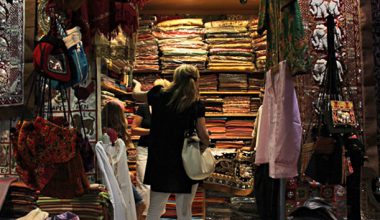
It's that time of year again—stomachs rumbling, mouths cotton-like, tempers not-so-manageable— Muslims the world over join in the spiritual month of Ramadan. From sun up to sun down Muslims are not to eat, drink, or smoke. In the last days leading up to Ramadan, we have what's called Graish, our equivalent of a potluck dinner of sorts that is more or less treated as the final pig-out before the fasting of Ramadan commences.
In keeping with the spirituality of the Holy Month, the wearing of strong perfumes, makeup, and swearing are frowned upon so that Muslims may make the most out of the month that is meant to humble believers and remind them of everything they should be grateful for. It is also a month of discipline and showing dedication to God.
Throughout the entire month, Muslims have special prayers each night besides the 5 daily prayers. During these special prayers, conducted right after the 5th and final prayer of the night (called Taraweeh) an equal portion of the Quran is recited each night so that by the end of the month the Quran is read in its entirety. During the last 10 days of Ramadan, regarded as the most valuable in terms of spirituality, additional prayers take place after 1 am, called Al Qiyam. These prayers take about an hour and take place at the mosque, where worshippers gather to show devotion to their religion
Generosity and good deeds are especially encouraged, as one experiences a small taste (pun intended) of the struggle that those less fortunate than themselves experience on a daily basis. Zakat, one of the 5 pillars of Islam (the other 4: believing in one god, prayer, fasting during the month of Ramadan and Hajj) is the giving of money to the poor. In Islam it is obligatory to give away 2.5% of ones savings and business revenue to those less fortunate.
On the surface, the holy month of Ramadan seems to be about what one cannot do, but it is based on many things that are given to the fasting Muslim rather than taken away. Ramadan gives them the gift of family. Every day one gathers with their extended family to enjoy Futoor, the first meal when the sun goes down. With a date and some water, the fast is broken and in the company of family gathered around the table, fasters enjoy a feast of delicacies and a myriad of the most mouth-watering dishes.
It's like Thanksgiving everyday for an entire month except in Ramadan, the meal doesn't end at the table. As we move to the living room to enjoy one another's company, we are followed by plates of desserts, pastries, tea, and arabic coffee. Apparently sharp pains in the stomach aren't enough of a cue to stop eating. (Stop snickering, you Thanksgiving-and-Christmas crowd are no strangers to eating beyond the point of fullness.)
Friends and other loved ones gather for a late night feast called Ghabga where fasters gather to socialize (and more importantly, eat) the night away. Another potluck, another opportunity to catch up with all who you love.
More fun is ahead as a Khaleejy Halloween takes place on the 13th, 14th, and 15th of Ramadan. This tradition sees children (and overgrown children alike) going from door to door dressed festively singing traditional Gergean songs in hopes of getting candy and even the odd loose change. Outfits are quite festive, and the candy, in too much abundance to avoid. (Sugar-induced coma, here we come!)
If during Ramadan all you can see is a confused jumble of angry hungry people who stay up late and seem extra lethargic, then you've missed the point of the month. It is a time to gain perspective, give a little more, and learn what it feels like to yearn for food. It's a time of contemplation, forgiveness, and generosity. We say goodbye to breakfast, and hello to socially encouraged late night food binges (called Suhoor—strictly to prepare us for an entire day of fasting), the month of Ramadan swoops down on us then leaves us a mere 30 days later: markedly pudgier, but more grateful for all our blessings, and equal parts relieved and sad that it's over.
-Noaf Hussain
Previously Published in August 2009.






